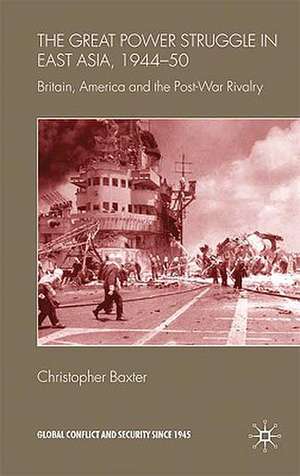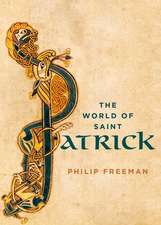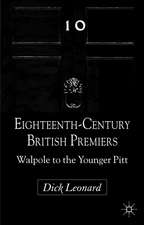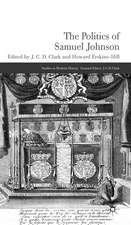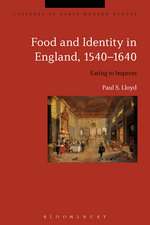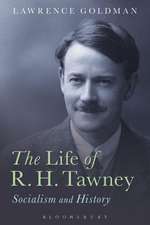The Great Power Struggle in East Asia, 1944-50: Britain, America and Post-War Rivalry: Global Conflict and Security since 1945
Autor Christopher Baxteren Limba Engleză Hardback – 29 oct 2009
Preț: 387.75 lei
Nou
Puncte Express: 582
Preț estimativ în valută:
74.19€ • 77.69$ • 61.54£
74.19€ • 77.69$ • 61.54£
Carte tipărită la comandă
Livrare economică 09-23 aprilie
Preluare comenzi: 021 569.72.76
Specificații
ISBN-13: 9780230202979
ISBN-10: 0230202977
Pagini: 250
Ilustrații: XIV, 250 p.
Dimensiuni: 140 x 216 x 20 mm
Greutate: 0.41 kg
Ediția:2009
Editura: Palgrave Macmillan UK
Colecția Palgrave Macmillan
Seria Global Conflict and Security since 1945
Locul publicării:London, United Kingdom
ISBN-10: 0230202977
Pagini: 250
Ilustrații: XIV, 250 p.
Dimensiuni: 140 x 216 x 20 mm
Greutate: 0.41 kg
Ediția:2009
Editura: Palgrave Macmillan UK
Colecția Palgrave Macmillan
Seria Global Conflict and Security since 1945
Locul publicării:London, United Kingdom
Cuprins
Acknowledgements Maps Abbreviations Introduction Defeating Japan Wartime Post-War Planning Japan Surrenders Occupation and Civil War Questioning Engagement Going into Reverse The Road to War Conclusion Bibliography Index
Recenzii
"Historians interested in Anglo-American relations in the immediate post-war years will find this trawl through the official archives fascinating and instructive." Sir Hugh Cortazzi, The Japan Society
"Those who used to rely on Christopher Thorne, whose Allies of a Kind (1978) dealt with the war against Japan, will now have to follow another Christopher...With such an auspicious professional beginning, he will be closely read in the future" - J. M. Lee, Asian Affairs
'Baxter's book is very detailed and has been judiciously researched among secondary literature on this topic from the last two decades, especially journal articles and edited volumes. Archival holdings, memoirs, diaries and private papers of the key civilian and military officials are successfully synthesised....a solid and impressive work which will prove a very useful addition for students and academics seeking a more specific regional variation on the shaping of post-war Anglo American foreign policies and the origins of the Cold War.' - Diplomacy & Statecraft
'The post-war British effort to retain a place of prominence in deciding world affairs is a sad tale that Christopher Baxter ably tells in his study discussing the early Cold War years in Japan, China and Korea...Among this study's strengths is its description of Australia's role as 'a major sub-plot' in post-war Anglo-American relations in East Asia, documenting how Britain failed to persuade its Commonwealth protégéto expand its regional security capabilities...Extensive research in archival collections stretching from Britain to the United States to Australia and a long list of secondary sources supports Baxter's findings. Making excellent use of remarks in primary documents, the author [also] exposes hidden British contempt for US leaders.'
-James Matray, The Journal of Imperial and Commonwealth History
"Based on extensive research in British, American and Australian archives and a sizeable body of secondary literature, Baxter manages to give a detailed account of the intricacies of Great Britain's involvement in the Far East. His coverage of the Australian dimension to British Far Eastern policy is especially enlightening... It offers interesting insights into an understudied period of early Cold War international history that culminated in Britain's involvement in Korea in 1950, an action deemed strategically unthinkable only a few years before." - Matthew Seibold, Contemporary British History
'This book contributes to our understanding of the apprehensions and misunderstandings of British diplomats as they sought strategic withdrawal from East Asia. The thesis - that it was the limitations of British statescraft that ultimately explains why Britain committed scarce military resources to the area - is persuasive.' - Journal of Contemporary History
"Those who used to rely on Christopher Thorne, whose Allies of a Kind (1978) dealt with the war against Japan, will now have to follow another Christopher...With such an auspicious professional beginning, he will be closely read in the future" - J. M. Lee, Asian Affairs
'Baxter's book is very detailed and has been judiciously researched among secondary literature on this topic from the last two decades, especially journal articles and edited volumes. Archival holdings, memoirs, diaries and private papers of the key civilian and military officials are successfully synthesised....a solid and impressive work which will prove a very useful addition for students and academics seeking a more specific regional variation on the shaping of post-war Anglo American foreign policies and the origins of the Cold War.' - Diplomacy & Statecraft
'The post-war British effort to retain a place of prominence in deciding world affairs is a sad tale that Christopher Baxter ably tells in his study discussing the early Cold War years in Japan, China and Korea...Among this study's strengths is its description of Australia's role as 'a major sub-plot' in post-war Anglo-American relations in East Asia, documenting how Britain failed to persuade its Commonwealth protégéto expand its regional security capabilities...Extensive research in archival collections stretching from Britain to the United States to Australia and a long list of secondary sources supports Baxter's findings. Making excellent use of remarks in primary documents, the author [also] exposes hidden British contempt for US leaders.'
-James Matray, The Journal of Imperial and Commonwealth History
"Based on extensive research in British, American and Australian archives and a sizeable body of secondary literature, Baxter manages to give a detailed account of the intricacies of Great Britain's involvement in the Far East. His coverage of the Australian dimension to British Far Eastern policy is especially enlightening... It offers interesting insights into an understudied period of early Cold War international history that culminated in Britain's involvement in Korea in 1950, an action deemed strategically unthinkable only a few years before." - Matthew Seibold, Contemporary British History
'This book contributes to our understanding of the apprehensions and misunderstandings of British diplomats as they sought strategic withdrawal from East Asia. The thesis - that it was the limitations of British statescraft that ultimately explains why Britain committed scarce military resources to the area - is persuasive.' - Journal of Contemporary History
Notă biografică
CHRISTOPHER BAXTER is a Research Fellow in Intelligence History at Queen's University Belfast. He was formerly one of the Foreign Office's resident historians and is currently working on the Official History of SIS (MI6) with Professor Keith Jeffery. He is the co-editor of Diplomats at War: British and Commonwealth Diplomacy in Wartime (2008).
